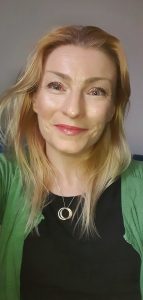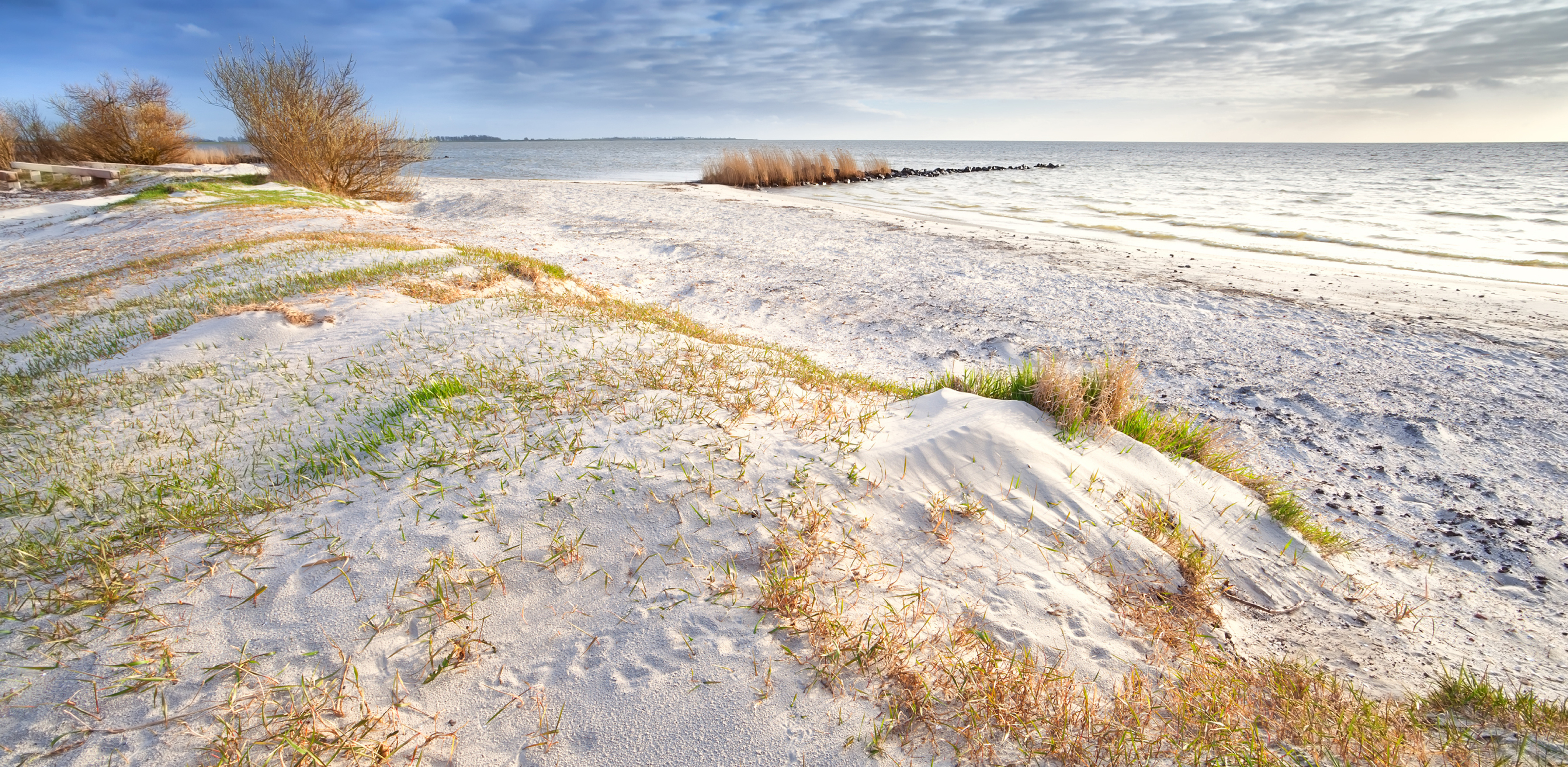How to ECoW When Social Distancing – By Clare Nisbet
BLOG
The last few weeks have seen a massive change in how we work on site.
With advice on working practices changing moment to moment, it has taken a fair bit of brain power to come up with solutions as to how the same high level of support and expertise can be provided to my clients when I am restricted as to what I can do on site.
Benched
For some of my projects, my presence is not considered an essential site visit, therefore I have been working remotely. Trying to assess a site from a desk 100+ miles away is certainly a challenge! Being desk-based means that I have to rely on gathering my information by phone, which is tricky when everyone is also having all their meetings by phone.
The relationships that I have built with my clients, contractors and fellow ECoWs has been invaluable. We can have frank discussions and if the answer really is ‘I don’t know’, we are able to voice it. There is a huge amount of comfort knowing that you can speak honestly when the whole world is in an uncertain and uncomfortable position.
Detail Ninja
Desk based working has resulted in my report structure having to adapt.
The reports are more focussed on action points, keeping track of them and closing them out. Each week, the report has the feel of a mini audit, but it captures the discussions that I have had over the phone and any outcomes, even if that action is a future discussion involving another party.
Since I cannot take a wander to find out for myself, I have to rely on contractor ECoWs or site operatives to take photos to evidence what is happening. This allows me to open and close action points based on what is observed on site, whilst continuing to provide guidance and advice that is project specific.
To Site or Not To Site
Everyone makes a personal decision about what is safe for them, taking into account health conditions, who they live with and any vulnerable people they need to support, amongst other factors. Therefore some people may not feel that it is appropriate for them to attend site right now.
And that’s OK.
There is no judgement.
We just need to know, so that we can look at alternatives and put a system in place.
The Changing Landscape of Site Safety
Sites take on a completely different atmosphere right now. The reduction in works can create an eerie feeling, when a site is normally a hive of activity.
Where sites have ongoing construction activities, site tours and visits deemed non-essential have been cancelled, including client ECoW site visits. Contractor ECoW visits have been reduced to minimise time on site, and desk-based work is carried out at home rather than in the site office.
When required, ECoW site visits can be a challenge due to social distancing, but sites have responded amazingly well. Some of the measures in place have included one-way walkways, phoning rather than signing in and out, and not visiting the main site office.
The biggest risk for ECoW’s is attending inductions and delivering toolbox talks. However, numbers attending briefings have been limited to allow for plenty of space between individuals, avoiding large numbers of people gathering in one space. Larger meeting rooms have been used, and the signing of any documents has been postponed to avoid everyone handling the same pen and paper.
Even those working in the office are spaced out, with individual offices used where possible, and limited numbers allowed in welfare units and canteen facilities.
Pre-construction checks have been arranged so that the ECoW avoids contact with operatives. Finger-tip searches, nesting bird checks and ecological walkovers are done in advance of anyone else arriving at the works location.
Monitoring on larger sites, where works are underway, are coordinated with operatives break times or conducted at a distance depending upon what is needing to be assessed.
Ensuring everyone’s safety is paramount and the key always is that if you do not feel comfortable doing something, to please speak up.
Whatever it is that needs to be addressed on site, a conversation is always the first step to determine the best and safest way to approach the task for all those involved. Be confident that there is always a way forward, we just have to come up with it!
So regardless of whether a site appears to be unusually quiet, or new safety protocols create that uncertainly that goes hand in hand with change, there is still an overall positivity that work is still being done and progress is still being made.
Team Work
Where site visits are not possible, site time has been reduced or certain areas are not able to be checked by the ECoW, it has been essential to work as a team.
I have implemented a system of Nominated Site Personnel to ensure that ecological and environmental checks are conducted each week. This has covered everything from having a single site contact who delegates checks to operatives, to specific operatives looking after areas, such as the storage yard at the main compound in relation to nesting birds and waste.
Enabling site contacts to send photos has allowed me to still have eyes on the project and consult on specific issues.
Formalising the system keeps the communication clear and concise, reducing any ambiguity about who is responsible for what. I have also found that the clearer I am about what I am asking, the easier (and faster) things are being actioned. This may be due to so many other things being very unclear at this time, so when I am very specific, it is a task that people feel that they can grasp onto and work with easily.
Experience is my Ally
I am reminded of the phrase ‘You don’t know, what you don’t know’.
Largely, because this entire situation is constantly in flux, and we are all just trying to do our best to stay safe and healthy in this seemingly never-ending landscape of unknowns.
But also, because when we don’t know something, we come back to what we do know.
And I know this.
That regardless of the situation:
- I am compassionate
We are only human, and the anxiety and frustration being experienced is affecting everyone in different ways. I know that we are all trying to be and do our best, and I approach all my interactions, whether on the phone or I person, with a huge dose of compassion. Right now, showing compassion and kindness is the most human thing we can all do.
- I listen
Regardless of what is happening around us, there is always time to listen. Listening is a huge part of connection, which is sorely lacking for us all stuck at home. Being forced to slow down is also bringing up a whole load of things for people personally, and sometimes the best thing that they need is to be heard.
- I can trouble shoot like my life depended on it
Brainstorming and holding space for idea generation is one of my strengths. I love thinking way outside the box and coming up with potential solutions to problems. These can then be looked at in further detail as to whether they can be implemented in a certain project situation.
These are my foundations right now.
These are what are keeping me calm.
These are what are allowing me to give value to my clients.
 Clare has worked in ecology for 9 years and has extensive experience of conducting both Ecological and Environmental Clerk of Works roles. She currently works for WSP and has worked on numerous large and small scale projects, including renewables, residential developments, OHL installation and refurbishment, national road and rail projects, as well as several substation and converter building projects. Clare has been the sole environmental presence for projects, as well as leading a team of ECoWs, including coordination with other specialisms such as archaeology and hydrology.
Clare has worked in ecology for 9 years and has extensive experience of conducting both Ecological and Environmental Clerk of Works roles. She currently works for WSP and has worked on numerous large and small scale projects, including renewables, residential developments, OHL installation and refurbishment, national road and rail projects, as well as several substation and converter building projects. Clare has been the sole environmental presence for projects, as well as leading a team of ECoWs, including coordination with other specialisms such as archaeology and hydrology.
Clare loves being on site and building strong relationships through excellent communication, with everyone from Project Manager to Site Operative. She loves to integrate herself to work as part of the team, regardless of whether attending site on behalf of the contractor or the client. She considers troubleshooting a key strength to come up with project and site specific solutions.
Blog posts on the CIEEM website are the views and opinions of the author(s) credited. They do not necessarily represent the views or position of CIEEM. The CIEEM blog is intended to be a space in which we publish though-provoking and discussion-stimulating articles.
